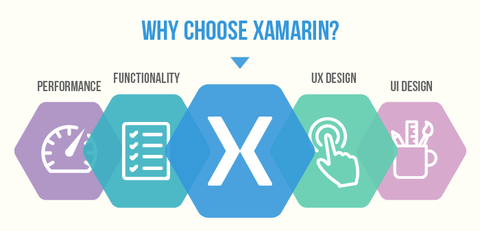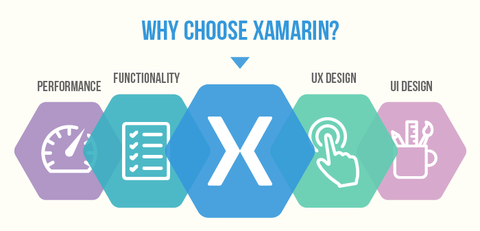Online community gives a good chance for CIOs to share their opinion on enterprise mobile applications. Some already have one and are satisfied with it, some are only enthusiastic to try it out. Yet others tell bitter stories about bringing in a mobile application that, they hoped, would make their employees’ jobs easier – only for the app to be forgotten in a week or two. The efforts they had put into the preparation of a surprise party for their “spoiled kids” weren’t appreciated. So, more than a half of IT directors swore to never take that risky, innovative path ever again.
We do not state that the right platform choice guarantees a 100% application success. What we are trying to say is that it does determine and influence a lot: functionality, performance, design and user experience overall. And, since the user audience of enterprise apps is limited to a specific company’s staff whose needs are more or less conspicuous, you have the necessary facts and criteria to make the right decision.
What we are also saying is that if you are a CIO who wants to deliver a good quality application to the company’s employees – you should strongly consider Xamarin. And we’re offering you 3 main reasons to do that.
1. Native app is not an option
The companies accommodated with only Apple or only Windows devices have it the easiest: they neither wrestle with the platform choice for longer than a split second nor worry about performance, since native apps are always great. But it would be foolish not to acknowledge that the number of organizations introducing the BYOD policy is getting bigger.
The development of 3 or more native versions of one application in such case is not budget-friendly. For these companies, it makes a great sense to cherish a dream of having an efficient enterprise mobile application that will work on many platforms, not on one.

2. Hybrid apps have serious limitations
A hybrid app is a popular approach in the development of applications that can equally fit into Android, iOS and Windows Phone. It was the ability to bring the development for multiple platforms under one, “hybrid” roof that helped Cordova get official recognition from SAP. However, the end result of this kind of project is in a rather inferior position to the result of native development.
Even a total newcomer to the weird and controversial mobile development world would be suspicious of the HTML/JavaScript language base in hybrid apps. And it have the right to be there, since the development on these languages is close to creating an in-browser web application. Despite the ability to present basic functionality that perfectly suits the creation of simple mobile software, both HTML and JavaScript cannot offer much to more complex enterprise apps.
Having neither much of agility in performance nor access to device hardware, apps developed on Cordova possess limited features and capabilities. Such applications can’t support remote voice calling and appear almost useless to customer service managers; they aren’t secure enough to allow bank transactions and miss the whole point of a mobile application for people working with finance. Even the development of an expanded catalogue app may appear unfeasible solely with the help of Cordova: heavy data takes time to load and hybrid apps are pretty slow.
3. Xamarin hits all the bases
Xamarin offers a great possibility to create a cross-platform and high-performing enterprise application at once. In contrast to hybrid applications, Xamarin apps have an absolutely different structure and are as technically close to native ones as possible.
Xamarin framework enables creation of software that, unlike Cordova-developed apps, doesn’t live in a browser-wrapper and has smart built-in libraries. It also grants applications the ability to directly communicate with a platform-specific hardware and presents two options for design implementation: an abstract – in Xamarin.Forms, and a platform-specific one – in Xamarin.iOS/Android.
Another advantage of Xamarin is its .NET C# language base. Not only it ensures the development of solid software and maintains the highly appreciated status of the C-languages, but also it is well-known to many enterprises who actively use .NET in their in-house development.
Success stories
The compatibility of the Xamarin framework with the development of enterprise mobile applications has already been noticed by many representatives of the prominent companies. One of their satisfied client is the Dutch Tax Office. The organization asked for a secure internal application that would help employees get information anytime and anywhere – and they got exactly what they wanted. The tax office managers state that with the efficiency of the Xamarin-based application the amount of paperwork significantly decreased and employees can now process more inspections – which, of course, advances the office's productivity overall.
ScienceSoft sees a great promise in the Xamarin framework and thus fosters its own team of Xamarin developers. One of our mobile projects was focused on the creation of a Xamarin document management app to integrate with the IFS Application ERP system. The customer had the MS Office documentation highly involved in the working process and demanded not just an agile performance but also a smooth integration with the office environment. Upon receiving a Xamarin application, the client was pleased with the quality of both the Xamarin application and the integration.
In conclusion
Based on our experience in mobile application development, we admit that hybrid app development and such frameworks as Cordova can be suitable for creation of most basic enterprise apps. But the fact that Xamarin has the ability to handle a much larger scope is out of the question. If you’re one of those CIOs who know that a carrot approach is more prolific and who want to please the “spoiled kids” with a brisk, secure, neatly-designed and feature-rich enterprise application – Xamarin won’t disappoint you.
